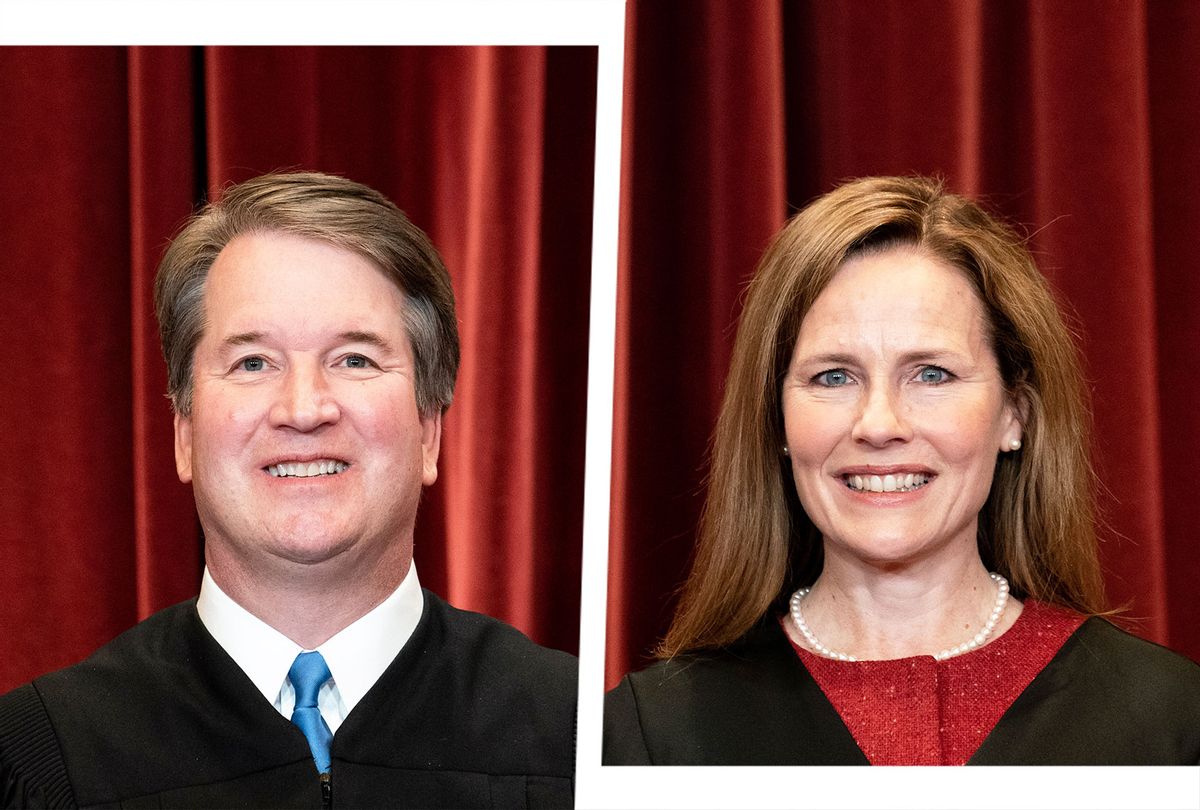The U.S. Supreme Court on Tuesday blocked a Texas law that prohibits large social media companies, such as Facebook or Twitter, from banning or removing users' posts based on political viewpoints.
The justices, in a 5-4 vote, granted NetChoice and the Computer & Communications Industry Association's request to reinstate a block imposed by a federal district judge as the lawsuit makes its way through the courts. The justices who voted to reverse the lower court's ruling didn't give a reason for their decision — a standard practice when the court is ruling on emergency applications.
Matt Schruers, president of the Computer & Communications Industry Association, one of the two groups that sued to block the law on claims that it violates companies' First Amendment rights, celebrated the court's decision.
"No online platform, website, or newspaper should be directed by government officials to carry certain speech," he said in a statement. "This has been a key tenet of our democracy for more than 200 years and the Supreme Court has upheld that."
Passed during a special session last year, House Bill 20 does not provide any specific civil penalties for breaking the law besides allowing users to sue to recuperate their court costs from the company found in violation. The law also empowers the attorney general to pursue violations.
The law would ban platforms with more than 50 million monthly users, such as Facebook, Twitter and YouTube, in the U.S. from removing a user over a "viewpoint" and require them to publicly report information about content removal and account suspensions.
The Legislature passed the measure after outcry from Republicans over perceived anti-conservative bias among major tech companies. That charge grew when Twitter permanently banned former President Donald Trump for inciting violence and purged over 70,000 accounts linked to dangerous conspiracy groups after the deadly Jan. 6 insurrection attack of the U.S. Capitol.
Supporters of the law say it ensures that users' political views go uncensored. State Rep. Briscoe Cain, R-Deer Park — who authored the bill — compared tech companies to "common carriers" like phone companies or cable providers, which are barred from customer discrimination.
Big social media company executives have denied removing content or blocking users based on their viewpoints, though they do have policies prohibiting explicitly graphic content, bullying, hate speech and dangerous misinformation. The two trade groups that challenged the Texas law argued in their lawsuit that HB 20 forces social-media platforms "to disseminate, for example, pro-Nazi speech, terrorist propaganda, foreign government disinformation, and medical misinformation."
"Texas's HB 20 is a constitutional trainwreck—or, as the district court put it, an example of 'burning the house to roast the pig,'" Chris Marchese, counsel at NetChoice, said in a statement on Tuesday. "We are relieved that the First Amendment, open internet, and the users who rely on it remain protected from Texas's unconstitutional overreach."
Texas Attorney General Ken Paxton has defended the law, saying it doesn't violate the First Amendment because social media platforms are "gatekeepers of a digital modern public square." He has also argued that social media platforms "are the twenty-first century descendants of telegraph and telephone companies." And he has claimed that the government should be allowed to regulate the companies as "common carriers," which are private or public companies that transport goods or people and are barred by government regulators from discriminating against customers.
The two industry trade groups that represent companies such as Google and Twitter sued to block the law last fall. In December, a federal district court judge ruled in favor of the groups and prevented the law from going into effect, reasoning that the First Amendment protects a company's right to moderate content and calling parts of the law "prohibitively vague."
As a result, Paxton appealed the district judge's decision to the 5th Circuit Court of Appeals, which reinstated the law.
Three conservative justices, Samuel A. Alito Jr., Clarence Thomas and Neil M. Gorsuch, said in a dissent that they would have let Texas' law stand for now. Justice Elena Kagan, a liberal, said she would have also let the order stand but didn't provide a reason.
Alito wrote in the dissent that it is "not at all obvious how our existing precedents, which predate the age of the internet, should apply to large social media companies." Still, he wrote, the case is "of great importance" and the Supreme Court would have to review the arguments at some point.
"Social media platforms have transformed the way people communicate with each other and obtain news," he wrote. "At issue is a ground-breaking Texas law that addresses the power of dominant social media corporations to shape public discussion of the important issues of the day."
Disclosure: Facebook and Google have been financial supporters of The Texas Tribune, a nonprofit, nonpartisan news organization that is funded in part by donations from members, foundations and corporate sponsors. Financial supporters play no role in the Tribune's journalism. Find a complete list of them here.
Stories like the one you just read come to life at The Texas Tribune Festival, the Tribune's annual celebration of politics and policy happening Sept. 22-24 in downtown Austin. For just a little bit longer you can grab a discounted ticket to this year's event, but act fast — savings end on May 31! Buy now and save.
This article originally appeared in The Texas Tribune at https://www.texastribune.org/2022/05/31/texas-social-media-law-blocked/.
The Texas Tribune is a member-supported, nonpartisan newsroom informing and engaging Texans on state politics and policy. Learn more at texastribune.org.



Shares